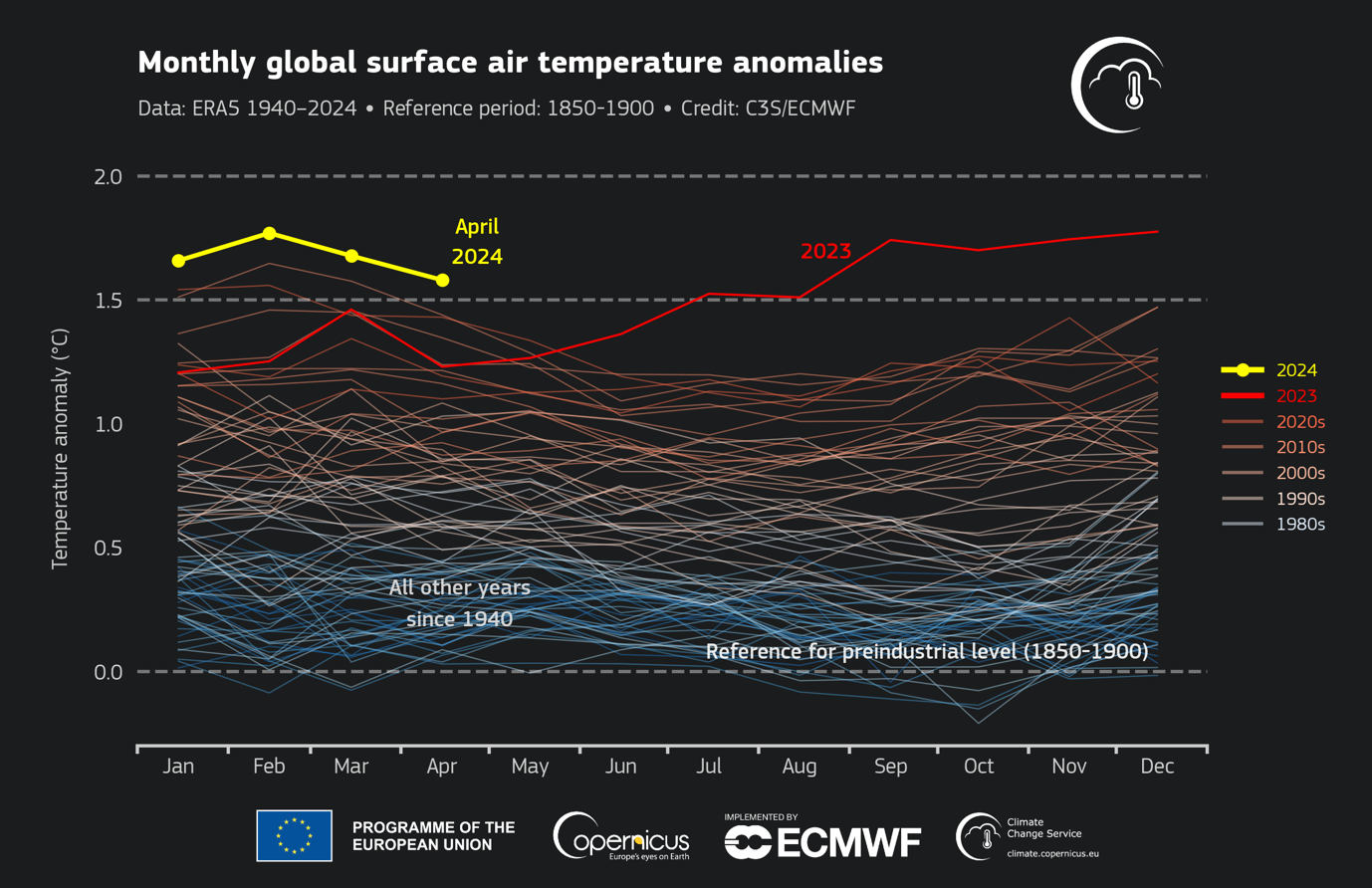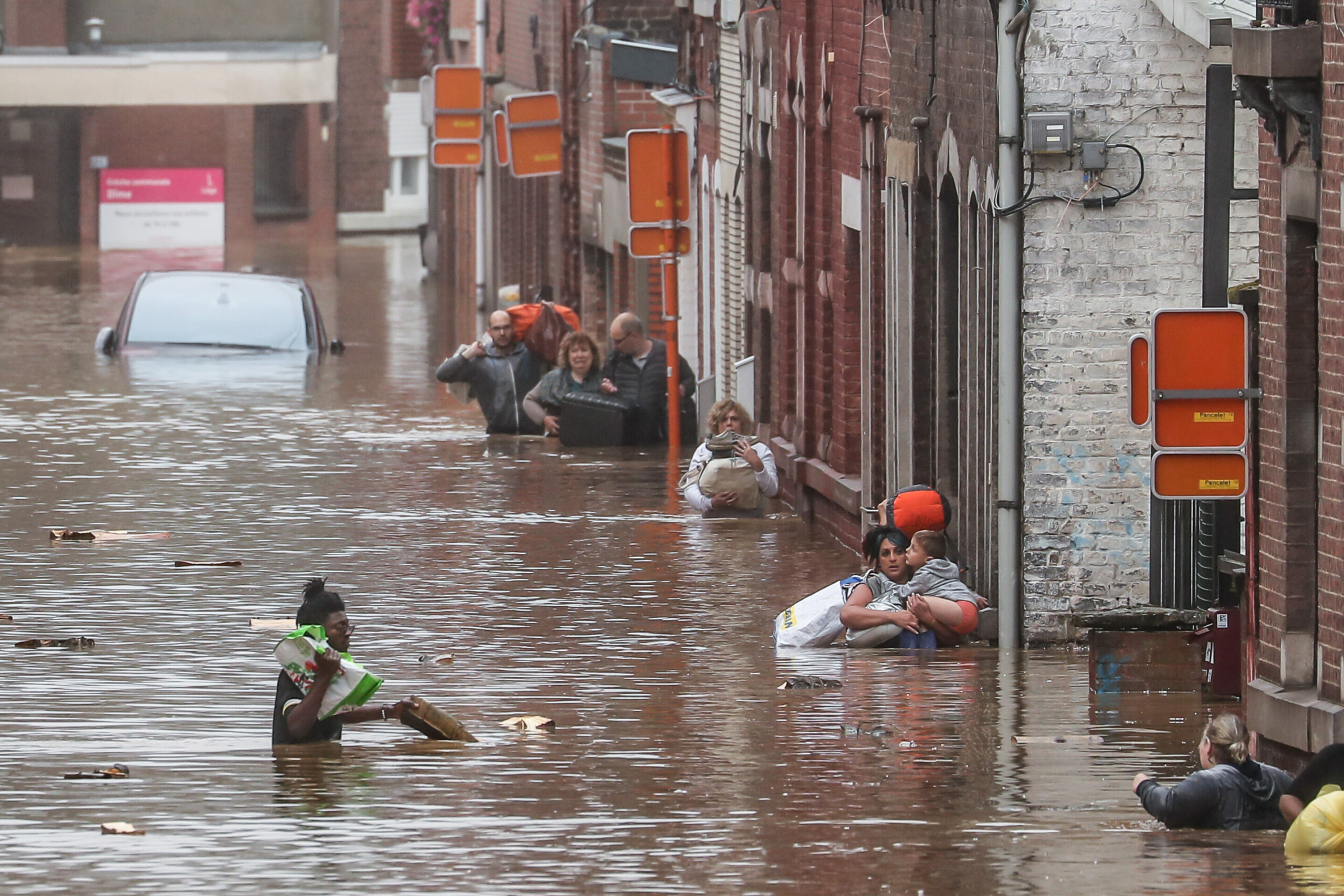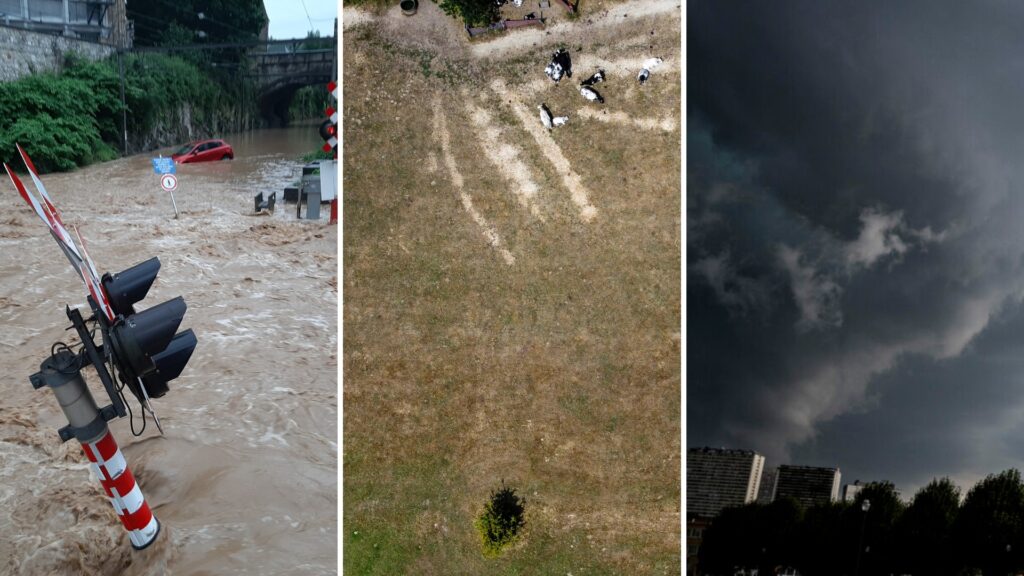Climate experts are growing ever more alarmed by global temperatures and the local effects, as the world saw the warmest April ever – the 11th consecutive month that was warmest on record.
While conditions in Belgium were wet and cold, the average global temperature in April was 1.58°C warmer than an estimate for the pre-industrial period 1850-1900, used as the reference period for the Paris climate agreement in which participating states agreed to limit global warming to "well below 2°C above pre-industrial levels" this century.
This continues an 11-month trend that started in June last year. Speaking to The Brussels Times, VUB climate scientist Wim Thiery acknowledged that "this is a very problematic situation [in which] daily, monthly and annual records are broken." Not only were these last 12 months the warmest since records began, but last calendar year was the warmest ever.

Monthly global surface air temperature anomalies (°C) relative to 1850–1900 from January 1940 to April 2024. Credit: Copernicus
Thiery highlights the risk of extreme weather that comes with the rise in temperatures: "from drought and heat waves to more severe hurricanes and floods. These are consequences people in Belgium should be worried about too. They may now be focused in another region but our turn will come too."
Contributing to heavy rainfall
Reports of global warming might seem out of kilter with the weather in Belgium, which experienced the wettest winter since 1970 this year. However, it has been markedly milder across Europe.
Belgium will likely continue to have wetter winters and drier summers with higher average temperatures across all seasons. In four of the five past summers, Belgium has experienced drought.
Thiery notes that the warmer weather in other regions also increases the likelihood of heavy rainfall in Belgium. "A warmer atmosphere can contain more moisture before that air is saturated; we see that in our computer models. When the air then becomes saturated, clouds start to form, followed by rain. But as there is more water in the air today, when it rains it rains more heavily."

Floods in Liège in July 2021. Credit: Belga/ Bruno Fahy
Thiery cites the 2021 "water bomb" as an example of how huge quantities of rain can fall. This has partly been driven by the natural El Niño climate phenomenon in the Pacific Ocean, which reached its peak at the beginning of the year.
"We already have the long-term warming trend which systematically pushes temperatures up," Thiery said. "On top of that, there are surges caused by El Niño. We are now at the end of that phase but there's no doubt that global warming is driving it all."
Worst-case scenario
A recent report by The Guardian highlighted the growing feeling of despair among top climate scientists, the majority of whom foresee at least 2.5°C of global heating. Almost half anticipate at least 3°C. This worst-case scenario would see climate disasters causing damage that societies cannot recover from.
"This will lead to mass deaths caused by heatwaves, mass migration, disruptions in our food and water supply. Living in a world 3°C warmer isn't something you would wish on your worst enemy, let alone your children. And this is the scenario we are currently heading towards, given current climate policies."
Thiery stressed that it is still within human influence to prevent the world from becoming very inhospitable.
"Limiting global warming depends purely on the emissions that we may or may not produce in the future." He argues that current climate policies are failing completely but it remains technologically and financially possible to limit global warming to 1.5°C. For every euro invested in climate action governments could save between €1.50 and €3.90 in climate damage.
"Taking climate action is the cheapest solution. We must not give a message of defeatism, of pessimism. The enormous concern of scientists should be seen as a serious call for action. With all we have at our disposal, we must start working to avoid that dystopia."

